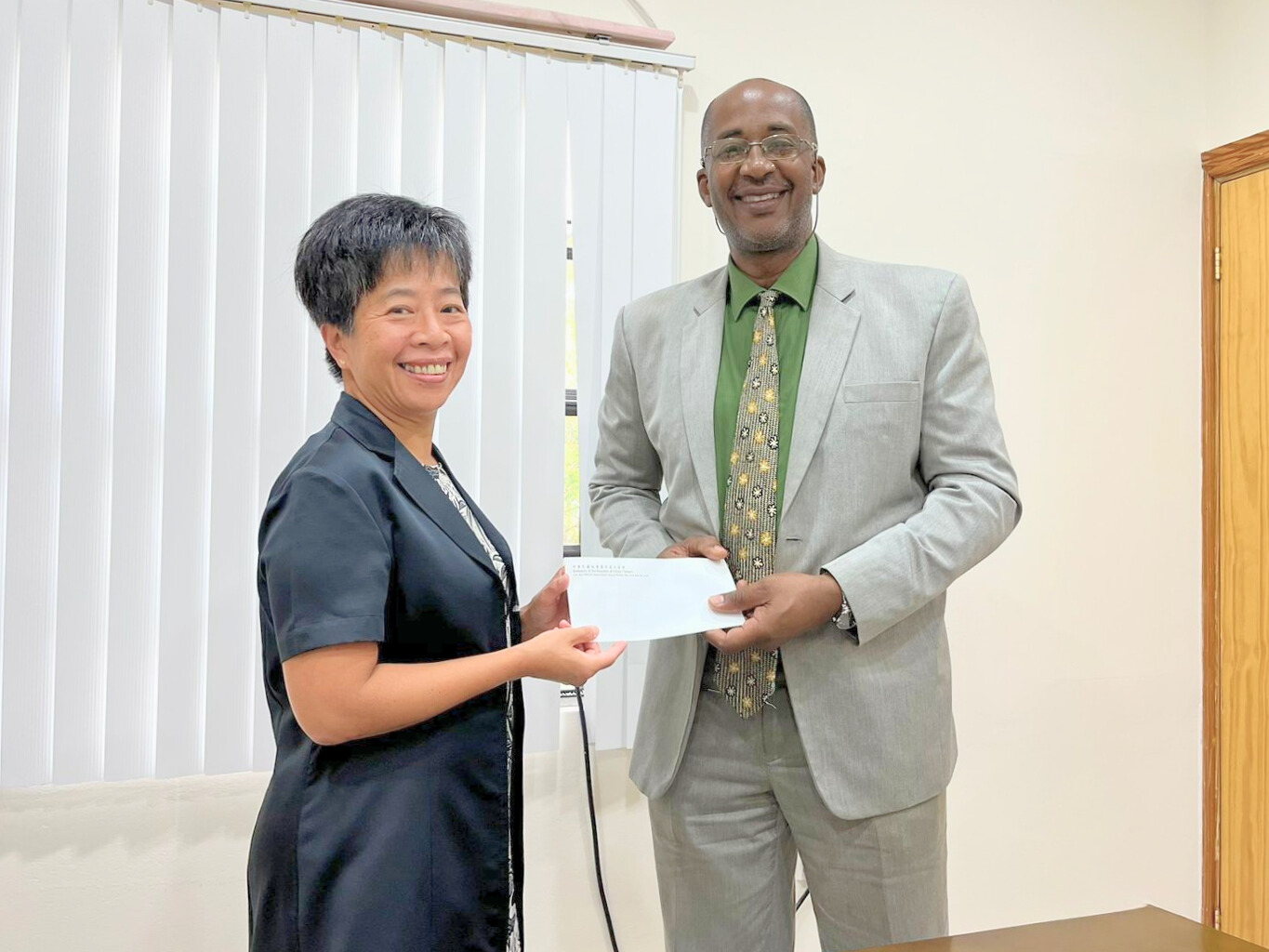
In ‘race to the sun’, Eastern Caribbean Solar Challenge gets significant Taiwanese boost
OECS MEDIA RELEASE
The OECS Commission has passed another major milestone in its quest to ramp up sustainable energy infrastructure across the Eastern Caribbean with a landmark US$200,000 (EC$541,348) investment from the Republic of China (Taiwan).
The funding supports the Eastern Caribbean Solar Challenge, which is set to deploy photovoltaic (PV) systems on critical public buildings in Saint Lucia, St Vincent and the Grenadines, and St Kitts and Nevis. This will mark a significant leap towards energy independence and climate resilience as the 2025-2035 OECS Decade of Action for Sustainable Energy Development continues to take shape.
Crispin d'Auvergne, Climate Change and Disaster Risk Management Coordinator with the OECS Commission, who accepted the funding from Taiwan’s ambassador to Saint Lucia, Nicole Su, on behalf of the beneficiary Member States, said:
"These projects, when completed, will serve as lasting and tangible examples of cooperation and a shared commitment to the pursuit of a sustainable future for our region.
"Let me express the wish and hope for continued collaboration as we continue the race to the sun.”
The Eastern Caribbean Solar Challenge, launched in May 2021, aims to accelerate solar energy adoption across government, private sector, and household levels. Taiwan was the first development partner to confirm tangible support. An island nation itself, it demonstrated "understanding of the need for countries of our region to pursue a sustainable energy future that increases climate resilience while simultaneously reducing dependence on imported fossil fuels", according to d’Auvergne.
This support from Taiwan will enable the installation of solar PV systems at the desalination plant on the Grenadine island of Bequia, from where residents get most of their drinking water. A significant amount of energy is required to remove salt from seawater for the 34,560 gallons of fresh water it produces every 24 hours. The funding will also support the installation of a solar PV system at a school in St Vincent. Solar PV will also be installed at Saint Lucia’s national forensic laboratory and the Public Works Department in Basseterre, Saint Kitts and Nevis.

The projects are designed to demonstrate scalable renewable energy solutions, and there is a strategic focus on public infrastructure as demonstration sites.
The phased implementation begins immediately, with Saint Lucia and St. Vincent and the Grenadines projects entering installation stages in the coming weeks, followed by St. Kitts and Nevis, the latest beneficiary to receive Taipei’s support under the programme. Saint Lucia received its allocation in 2023, followed by St Vincent and the Grenadines in 2024.
The Eastern Caribbean Solar Challenge aims for at least 5 megawatts of new small-to-medium photovoltaic installations by 2025. There is also a target of 6 MW of new installed solar power capacity across the OECS.
The initiative aims to achieve reduced carbon emissions, decreased reliance on imported fossil fuels, enhanced energy security, economic opportunities in the renewable sector, and increased climate adaptation capabilities.
The OECS Commission expressed special gratitude to Taiwan's diplomatic team, particularly former ambassador Peter Chen and Deputy Counsellor Selena Chih-han Chan, who went “above and beyond to facilitate every step of the process", said d’Auvergne.
Among those witnessing the presentation virtually on behalf of the Government of St. Kitts and Nevis were the Minister of Energy, the Honourable Konris Maynard, the current chair of the OECS Council of Ministers: Energy; Permanent Secretary Daryll Lloyd; Director of Energy Dr Bertill Browne; and Energy Officer Denasio Frank.

About the EC Solar Challenge
The Eastern Caribbean Solar Challenge (slogan: 'Race to the Sun'), an initiative under the Caribbean Nationally Determined Contributions Finance Initiative (NDCFI), aims to accelerate the adoption of solar energy across the OECS. Recognising the vulnerability of OECS Member States to environmental shocks and their ambition to demonstrate energy leadership, the challenge seeks to galvanise action from governments, the private sector, development partners, and households. By encouraging investment in small and medium-sized PV units, public solar installations, and household-level systems, the challenge aims to significantly increase the deployment of renewable energy technologies. With a focus on achieving tangible results and promoting climate mitigation and resilience, the EC Solar Challenge supports the transition to a low-carbon economic zone and contributes to global efforts to limit temperature rise to 1.5°C.
Visit https://www.oecs.org/solar-challenge for more information on the EC Solar Challenge.
OECS Communications Unit